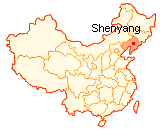Okay, a dozen is probably over estimating how many languages people used this year to tell me happy birthday, but not by much. Chinese, Japanese, Portuguese, Creole, Swahili…
But instead of boring you with a list of languages, let me tell you about the most amazing birthday I could ever have asked for while living in a foreign country. The morning was pretty typical for me, although I did decide to skip my first two hours of class in order to call home. And we did have a pop quiz in the class I did go to, over material I hadn’t even looked at yet. Oops. But besides that, it was pretty normal.
After class, a friend from the Medical University had asked me to go down to his campus to help him with an application. So I headed off on an absolutely ridiculous attempt to take a bus to the Medical University. Let’s just say it normally takes 40 minutes, and this time it took more than twice that. But after finally realizing my normal bus choice has recently changed routes such that it no longer comes my way, then walking a while to find another bus going the right direction, standing on a crowded bus for far too long, managing somehow to get lost between where I got off and where I was headed (construction sites…), and getting soaked in the sprinklers that randomly decided to go off right when I was walking by, I made it there.
After a few minutes of “work” there at the school, we decided the weather was too perfect for sitting inside. So we headed down to a beautiful park along a river at the south side of the city. It was marvelous! It was the perfect opportunity to enjoy a surprisingly-not-so-full-of-Chinese-people park. We walked along the river a ways, happened upon the damn upstream that we didn’t know about, and played badminton for a while on an amazingly green lawn.
I had no plans for the evening, so was more than willing to spend plenty of time enjoying the park and the perfect weather. However, the guy I was with insisted that he had to be back to his room at 6:00 for something. So at the appropriate time we made our way back to campus. (Not my campus, but the Medical campus. A significant portion of my friends here are from the Medical University and not from my school, so I spend a good deal of time down there.) To my great surprise, the “thing” at 6:00 was a party for me!
I was really impressed that they actually managed to keep the event a surprise to me, especially when I found out that several of the others were also surprised to find out it was a surprise! But they managed, and I was indeed not expecting such a thing. But I have to admit that the whole day made me feel so loved and feel so much belonging among these people.
The party itself was way better than just a typical birthday party, because it started with a time of singing my favorite kind of songs and some sharing from my favorite book, and then they all asked our Father on my behalf. What an encouragement! But of course, the party would only have been a fellowship if it had ended there. So that was followed by lots of delicious fruit, some delivered Chinese food, and even a cake. (By the way, turns out it really is the thought that counts. Somehow the cake really did taste pretty good, since it was from my friends who cared enough to get it for me, even though it was one of those typical Chinese cakes that really can’t compare to anything back home.) The food, though, had nothing on the other activities of the night. Among the eight of us there, we represented seven countries. Of those seven countries, six of them were in Africa. (Hint: I’m from the U.S., which is not in Africa.) So someone grabbed a guitar and started playing some African P&W songs that I have learned over the course of this year. African songs are very energetic and just make you want to dance. So six of us (minus the guitar player and the cameraman) squeezed into the open half of the one dorm room and danced: South African dancing, Tanzanian dancing, etc. And all to music that is uplifting and encouraging. How fun!
However, six sweaty people in a (small) dorm room with no air soon turned into a hot, sticky mess. After we were too hot and tired to go on (or was it that they ran out of African P&W songs that I know?), we decided to watch a movie. It was a really interesting experience for me, though, to sit with 7 Africans and watch a movie about African Americans. We had an interesting discussion afterwards about that.
Soon enough, midnight rolled around and it was no longer my birthday. At least not in China. So we all headed back to our homes (a.k.a. dorms) and slept well. (I slept well, anyway. I was worn out after all the unexpected excitement of the day!) But I went home that night feeling very special, very loved, and very much excited about the year that is to come.









